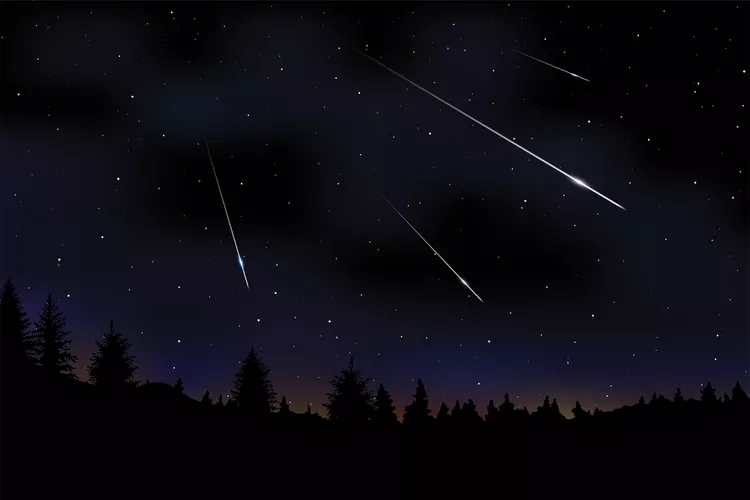How to Watch the Perseids This Weekend
If there’s one meteor shower to stay up for this year, it’s by far this weekend’s Perseids. The annual Perseid meteor shower will peak from around midnight on August 12 into the early morning of August 13. With a nearly new moon to keep the skies inky dark, timing for this year’s Perseids couldn’t be more perfect.
To catch the peak of this year’s Perseid meteor shower, look toward the constellation Perseus in the east to northeast sky. The shower technically runs from July 14 to Sept. 1 this year, but it will reach its peak flurry of activity overnight from Saturday, Aug. 12 into Sunday, Aug. 13. At this time, stargazers could see around 100 meteors per hour, according to Space.com. You can also enjoy near-peak conditions overnight on Friday, Aug. 11, according to The Old Farmer’s Almanac.
If the skies are clear, this year’s Perseids will be particularly special. The night’s sliver of a waning crescent moon will be just over 10 percent illuminated. That means light from our neighboring space rock won’t wash out the shooting stars the way it did in 2022.
Where to Watch the Perseid Meteor Shower
To see the weekend’s interstellar fireworks, head to a remote or dark-sky-certified destination that’s far from light pollution, such as a national park or a stargazing-friendly hotel. (Think: luxurious stargazing accommodations or cozy retreats to enhance your celestial experience.) No matter where you go, find a stargazing perch with open views to the east and northeast sky. Open fields, hilltop overlooks, or unobstructed waterfronts work well.
You won’t need specialized equipment like binoculars to spot the soaring meteors. Just give your eyes 30 minutes to adjust to the darkness and bring a red-light flashlight to keep your eyes adjusted throughout the night.
In addition to shooting stars — sparked when comet debris collides with Earth’s atmosphere — the Perseid meteor shower is known for its abundance of fireballs. These exceptionally bright meteors often shine as vibrantly as Venus, our solar system’s brightest planet, as they explode in the atmosphere. According to NASA, the Perseids produce more fireballs than any other meteor shower, which is even more reason to head out for a night of stargazing this weekend.




